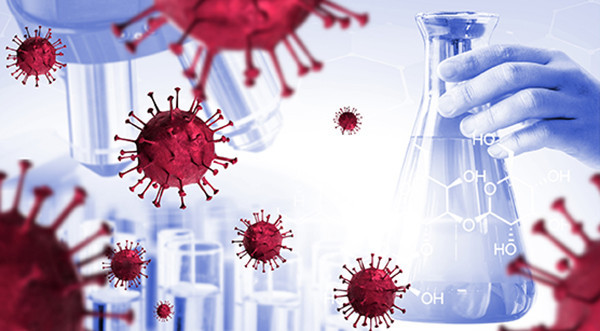Lagatar24 Desk
New Delhi: Japanese researchers from Kobe University have uncovered a key mechanism that makes SARS-CoV-2, the virus behind Covid-19, more infectious compared to previous coronaviruses like SARS and MERS. The research reveals that Covid-19 carries a unique enzyme that targets and disables a cell’s innate defense system against viral infections.
According to the researchers, the enzyme interferes with the molecular process involving a protein tag called ISG15, which usually prevents nucleocapsid proteins in viruses from attaching to each other. This attachment is crucial for the virus to assemble new copies of itself within human cells.
“Breaking Through the Defense Mechanism”
Virologist Shoji Ikuo, leading the research, explained that this enzyme can remove the ISG15 tag, allowing the nucleocapsid proteins to regain their ability to assemble new virus particles. By doing this, the virus can overcome the body’s first line of immune defense. Shoji’s team published their findings in the Journal of Virology.
Although previous coronaviruses like SARS and MERS also carry an enzyme that removes ISG15 tags, the study showed that their versions are less efficient, which helps explain why Covid-19 spreads more easily.
“Covid’s Superior Immune Evasion”
The innate immune system is crucial in preventing viral entry and replication, as well as in identifying and removing infected cells. Covid-19’s ability to evade this defense mechanism helped it spread rapidly across the globe, even reaching remote areas like Antarctica.
The study’s findings also suggest that Covid-19 continues to mutate, though its severity has decreased over time due to mass vaccinations and the development of herd immunity.
“Hope for Future Therapeutic Strategies”
This discovery may lead to the development of more effective treatments for Covid-19 and similar diseases in the future. Researchers believe that targeting the viral enzyme responsible for removing the ISG15 tag could help create new antiviral drugs.
“By inhibiting the function of this enzyme, or directly targeting the nucleocapsid protein, we could develop new therapeutic strategies to combat not just Covid-19 but other similar viral threats,” said Shoji’s team.







